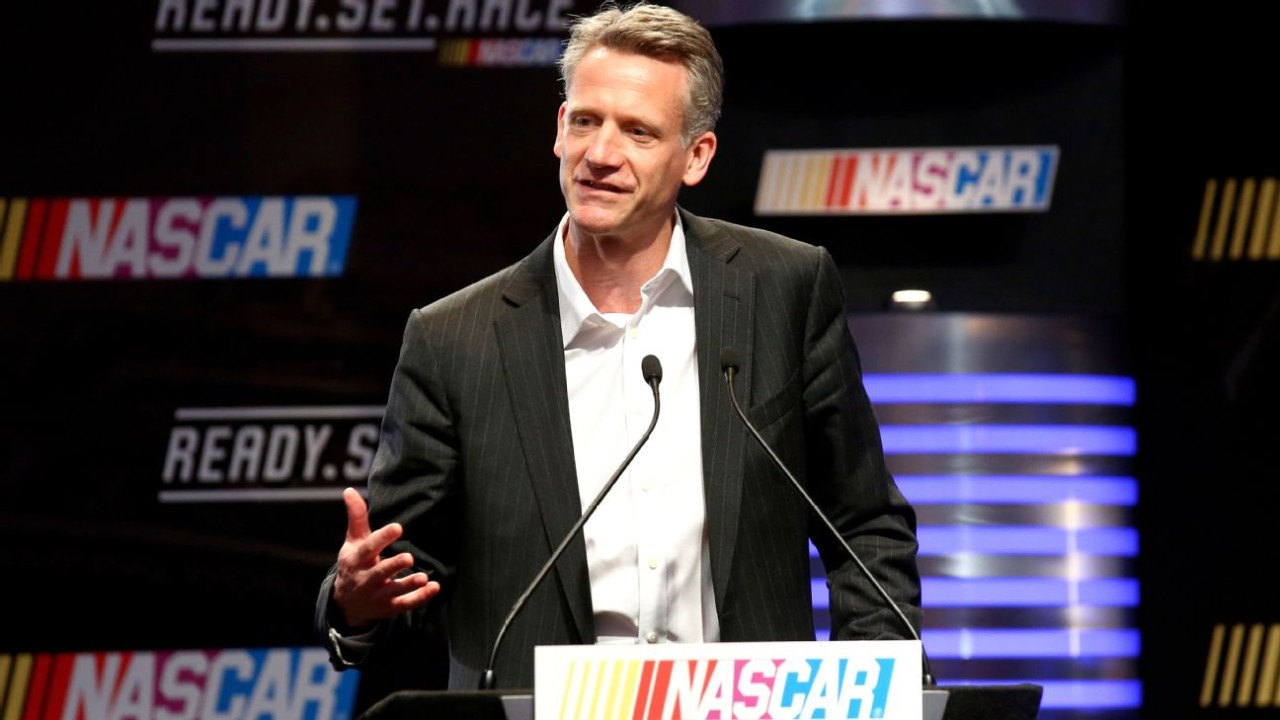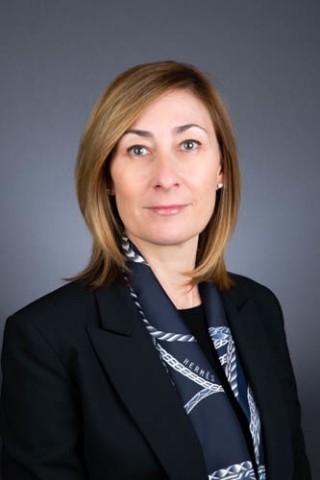Conversation with a Leader
NASCAR: surviving COVID and standing up against racism
Steve Phelps, CGSOM ’87, P ’23, the president of NASCAR, spoke with students about his professional journey and shared his insight on the sports management industry. In describing what led him to Boston College, Phelps said that in choosing between BC and another school, he appealed to the dean of the Carroll School, saying that he wanted to go to BC but could not afford the tuition. The dean simply replied: “You start class tomorrow.” This, he noted, was an act of kindness that created a seminal moment in his life and career, and embodies what it means to be at BC.
Phelps reflected on the whirlwind year in sports, culture, and politics. On the coronavirus pandemic, he highlighted that NASCAR was the first sport to resume after the initial shutdown. His organization's goal, he said, was to bring racing back on TV while ensuring that all participants were safe. In this regard, he worked closely with local and federal public health officials and industry experts to get live racing back as soon as possible.
What is clear is that Phelps is unafraid to face adversity head-on. In light of George Floyd's death, NASCAR made history by banning the Confederate flag at all its events. This momentous decision signaled the organization's commitment to making NASCAR a welcoming and inclusive sport. He recollected the moment when Bubba Watson, the only Black NASCAR driver, walked side-by-side with his fellow race car drivers to show solidarity with the Black Lives Matter movement, further convincing Phelps that he had made the right decision. Of course, this decision came with many challenges, including angry pushback from some of NASCAR's supporters, but he said the change will allow racing to broaden its domestic market by attracting new viewers.
On the future of the sports entertainment industry, Phelps is confident that it will weather the pandemic's economic impact and find new avenues to achieve growth. For example, he cited NASCAR's growing presence in e-Sports, such as their iRacing invitational competitions. The market for this industry allows NASCAR to reach a younger audience with no experience in traditional racing. Within the industry, NASCAR is expanding its branding to Europe and China, two untapped markets for the company. Overall, Phelps is hopeful for NASCAR's future as it looks to become a more inclusive and global organization.
Czar Sepe ’21, Winston Ambassador





